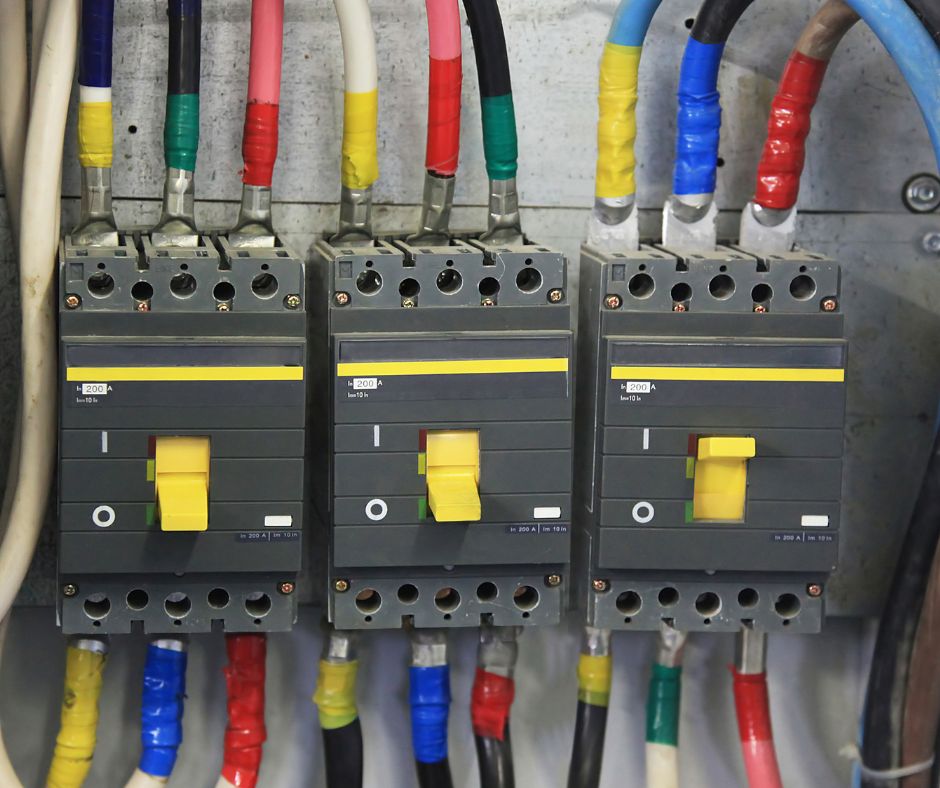The Vital Role of Electrical Insulation Tape in Ensuring Electrical Safety
Electrical insulation tape is an indispensable item that protects and insulates various types of electrical wires and cables from potential hazards. Commonly known as insulating tape, this essential tool is crucial for maintaining safety in both professional and residential environments. By effectively averting electrical shorts and safeguarding against moisture, dust, and physical wear, this tape is vital for the seamless operation and safety of electrical systems. A comprehensive understanding of its significance can greatly reduce the risk of accidents while ensuring a tidy and efficient workspace.
Electrical insulation tape comes in a wide range of sizes, colors, and lengths, specifically designed for various applications. These diverse options not only enhance the effectiveness of insulation but also aid in the organization and identification of wires through color-coding. By utilizing different colors strategically, you can streamline your electrical work processes, allowing for the quick identification of specific wires, which ultimately boosts productivity and organization in your tasks.

Key Conditions to Monitor When Electrical Tape Melts
It is important to note that electrical tape can indeed melt under specific circumstances. This article provides an in-depth analysis of the temperature limits associated with electrical tape, details the conditions that can lead to melting, and highlights critical signs of overheating that should be monitored closely. Understanding these factors is essential for the safe and effective utilization of electrical insulation tape across various applications.
Understanding Temperature Limits of Electrical Tape for Safe Usage
Similar to many materials, electrical tape has defined temperature limits that must be considered for safe applications. Generally, most standard electrical tapes can tolerate temperatures up to approximately 80°C, although some heavy-duty variants are engineered to withstand slightly higher temperatures. When exposed to conditions that exceed these limits, the tape’s structural integrity may begin to deteriorate, resulting in potential failures.
As temperatures rise and approach the maximum threshold, the effectiveness of electrical tape starts to decline. This degradation may manifest in various forms, such as melting, developing a gooey texture, or, in extreme cases, complete failure of the tape. Being aware of these temperature limitations is vital for maintaining safety and effectiveness in electrical applications, ensuring your projects are completed without unnecessary risks and complications.
For environments subjected to extreme conditions, consider utilizing high-temperature variants of electrical tape. For example, heat-resistant tape, made from materials like fiberglass or silicone, can withstand temperatures of up to 200°C or even higher, making it an excellent choice for applications that experience intense heat.
Also Read: Keep Your Pets Safe Around Electricity
Request a Quote Today!
Inquire About Our FREE Electrical Inspections

Recognizing Causes for Electrical Tape Melting
Electrical tape may melt due to various factors, predominantly caused by exposure to excessive heat. Understanding these causes is crucial for ensuring safe and efficient usage. Here are some of the most common reasons that lead to tape melting:
Identifying the Impact of Heat Overexposure on Electrical Tape
The primary cause of electrical tape melting is its exposure to high temperatures. If the tape is positioned near hot surfaces, engines, or any components that generate heat, it may begin to soften, bubble, or completely melt. Furthermore, electrical systems like power circuits can produce more heat than the tape can tolerate, especially during overloads or malfunctions.
Thus, when using electrical tape in areas prone to high temperatures, it is prudent to check the temperature ratings of the tape to prevent potential failures and uphold safety.
Assessing Environmental Factors That Degrade Electrical Tape
Electrical tape is not designed for indefinite longevity. Over time, both the adhesive and the tape material can degrade, particularly when subjected to UV exposure, moisture, or other harsh environmental conditions. This degradation can significantly compromise the insulating properties of the tape. As the tape ages, it may lose its functionality, becoming more susceptible to melting even at lower temperatures than it would typically handle.
Regular wear and tear are an inherent part of electrical tape’s lifecycle. Therefore, it is essential to routinely inspect the tape for signs of aging or damage to ensure ongoing safety and performance.
The Dangers of Incorrect Application of Electrical Tape
Applying electrical tape in less-than-ideal conditions can lead to premature failure. For instance, if the tape is wrapped too tightly, exposed to friction or heat, or overstretched during application, its performance may be compromised. Additionally, wrapping the tape around sharp edges or applying it to components that are likely to overheat, such as light bulbs or electrical outlets, can create issues unless the tape is specifically rated for such applications.
Also Read: 10 Ways to Save On Power And Energy Costs
Key Indicators of Overheating Electrical Tape
If you suspect that your electrical tape is experiencing overheating, there are several key indicators to observe. Here are the most common signs that your tape may be melting or experiencing excessive heat:
Identifying a Sticky or Tacky Texture in Overheated Tape
A noticeable change in texture, particularly a sticky or tacky sensation, is often one of the first signs of melting electrical tape. This alteration can serve as an early warning sign of further degradation, indicating that the tape may no longer provide adequate insulation.
Detecting Discoloration as a Sign of Heat Damage
Overheating electrical tape may demonstrate significant discoloration. You might notice a transition from its standard black or colored appearance to shades of brown, dark gray, or even black. This change occurs as heat breaks down the tape’s PVC or other materials. Identifying this issue promptly can avert further damage to your wires; if left unaddressed, it can lead to melting or even create fire hazards.
Observing Bubbling or Distortion as Signs of Excessive Heat Effects
If electrical tape begins to bubble, distort, or warp, it indicates that heat is negatively affecting its structure. This typically occurs when heat causes the adhesive or plastic layers to separate or degrade. The surface may appear wavy or uneven, signaling that temperatures are surpassing safe levels. Upon noticing these bubbles, it is advisable to consult your electrician for a comprehensive evaluation.
Smelling Burnt Odors as a Serious Warning
A burning smell near electrical tape is a critical warning sign that should not be ignored. This odor may resemble melting plastic or burning rubber. When excessive heat causes the adhesive to break down, the resulting fumes can pose serious concerns. Do not overlook this warning. If you detect a burning smell, it may indicate that the tape is on the verge of melting or even catching fire.
Visible Smoke as a Major Red Flag for Immediate Action
If you see smoke emanating from the electrical tape, it is a clear indication that the heat levels have far exceeded the tape’s tolerance. The presence of smoke strongly suggests that the tape has likely begun to melt or may even ignite. At this critical juncture, it is essential to immediately turn off the power source and contact your electrician for assistance.
Remember – Never use water to extinguish an electrical fire. Instead, utilize a CO2 fire extinguisher for safety.
Safety Steps to Follow if Electrical Tape Melts
If your electrical tape melts, the first step is to disconnect any power sources or turn off any equipment to ensure safety.
Prioritizing safety is crucial, as electrical hazards can pose serious risks to both life and property.
After ensuring the area is safe, always consult your electrician for expert guidance. If a professional installed the tape, they may need to examine the area for any underlying electrical issues that could have contributed to the problem, ensuring comprehensive safety and proper functionality.
Exploring Alternatives to Electrical Tape for High-Temperature Settings
If you frequently operate in environments where temperatures exceed the limits of standard electrical tape, it is wise to consult your electrician regarding suitable alternatives. Here are some options worth considering:
- Heat-resistant silicone tape: This variant is specifically engineered to handle elevated temperatures and is ideal for applications where heat is a significant consideration.
- Fiberglass tape: A robust choice that can withstand extreme temperatures without compromising performance or safety.
- Mica or ceramic insulation: For optimal heat protection, specialized insulations like mica or ceramic are excellent alternatives.
Essential Knowledge About the Risks of Melting Electrical Tape
In summary, electrical tape can indeed melt, primarily due to excessive heat exposure. Understanding the temperature limits of your tape and ensuring that you select the appropriate type for your specific application are critical steps in preventing potential issues.
By remaining vigilant for signs such as discoloration, stickiness, or unusual odors, you can take swift action to mitigate risks. Always prioritize safety and do not hesitate to contact your local electrician for expert advice when needed.
Request a Quote Today!
Inquire About Our FREE Electrical Inspections

The Article: Does Electrical Tape Melt? Here’s What You Need to Know first appeared on https://writebuff.com
The Article Electrical Tape Melting: Essential Facts You Should Know Was Found On https://limitsofstrategy.com


No responses yet